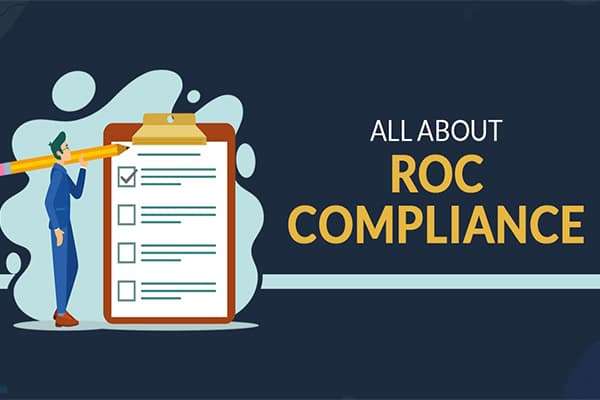ROC Compliance and Annual Filing
ROC Compliance and Annual Filing
Complying with the numerous regulations under the Companies Act, 2013—including director appointments, shareholder meetings, and routine filings—can be challenging for private limited companies in India. For many business owners, managing these ongoing legal and procedural requirements often feels complex and time-consuming. Stride Tax is here to make compliance simpler. We offer tailored, end-to-end support to help your company meet all statutory obligations—from initial registration to ongoing regulatory compliance. Backed by a team of experts well-versed in Indian corporate laws, we ensure your business remains fully compliant without the hassle. Whether you’re a new startup or a growing enterprise, Stride Tax is your trusted compliance partner.

Compliance for Private Limited Company
Compliance means following established rules, regulations, or directives. For private limited companies registered in India, adhering to the provisions of the Companies Act, 2013 is a legal necessity. This includes fulfilling various obligations to the Registrar of Companies (RoC).
The Act outlines requirements related to the appointment, qualifications, remuneration, and retirement of directors, as well as the proper conduct of board and shareholder meetings. Regardless of a company’s capital structure or turnover, RoC compliance is mandatory for all private limited companies.
Compliance requirements fall into two main categories:
- RoC Compliance (Registrar-related): Obligations that must be met under the jurisdiction of the Registrar of Companies, such as annual filings, director disclosures, and meeting records.
- Non-RoC Compliance (Beyond Registrar’s Scope): Other regulatory duties not directly under the RoC, such as tax filings, GST compliance, labor law adherence, and sector-specific regulations.
ROC Compliance for Private Limited Company
As outlined earlier, companies are required to meet specific obligations set forth by the Registrar of Companies (RoC) or similar governing authorities. These obligations typically involve statutory filings and compliance with the provisions of the Companies Act, 2013.
For private limited companies operating in India, maintaining RoC compliance is crucial to ensure legal standing and avoid penalties. RoC compliance requirements can be broadly categorized into the following:
- Annual Compliance: These are mandatory yearly filings that include the submission of annual returns, financial statements, and other prescribed documents. These filings reflect the company’s financial position and operational status.
- Event-Based Compliance: These arise only when specific corporate actions take place, such as changes in directorship, alteration of share capital, or a shift in the registered office address. Timely reporting of such events to the RoC is essential.
- Other Compliance Requirements: This includes additional obligations that don’t fall strictly under annual or event-based filings but are still legally necessary. Examples include updating director KYC, maintaining statutory registers, and recording minutes of meetings.
Circulation of Financial Statements and Other Relevant Documents
Private limited companies are required to circulate their approved financial statements, along with the Directors’ and Auditors’ Reports, to all shareholders at least 21 clear days before the Annual General Meeting (AGM).
For your convenience, here is a summary of key annual compliance requirements for private limited companies in India, along with their respective due dates:
| Annual Compliance for Private Limited Company | Due Date |
|---|---|
| Commencement of Business Certificate (COB) | Within 180 days of incorporation |
| Appointment of Auditor and Filing E-form ADT-1 | Within 15 days of the AGM |
| Holding Board Meetings | As per the scheduled board meetings |
| Conducting the Annual General Meeting (AGM) | Within 9 months from financial year-end |
| INC-20A: Declaration for Commencement of Business | Within 180 days of incorporation |
| AOC-4: Filing of Financial Statements | Within 30 days of the AGM |
| MGT-7A: Annual Return for Small Companies/OPCs | Within 60 days of the AGM |
| DIR-12: Director Appointment/Resignation Filing | Within 30 days of appointment/resignation |
| DIR-3 KYC: Submission of Director KYC | By September 30th each year |
| MGT-14: Filing of Board Resolutions | Within 30 days of passing the resolution |
| DPT-3: Return of Deposits | By June 30th each year |
| Directors’ Report Preparation | At least 21 days before the AGM |
| Statutory Registers & Books of Accounts Maintenance | Throughout the financial year |
| Circulation of Financial Statements & Related Documents | At least 21 days before the AGM |
